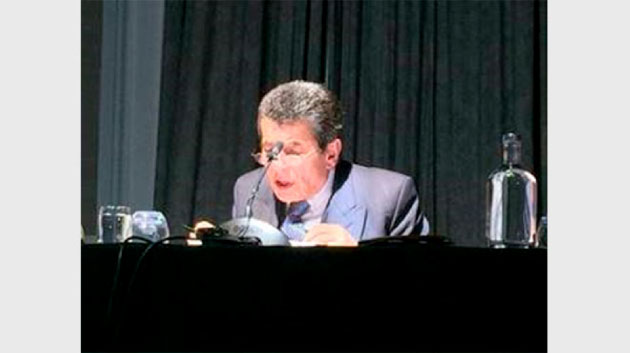China Guilty of Forced Organ Extraction, Says Tribunal
Japan's Responsibility As a Global Leader
Key points in this article:
- International independent tribunal ruled that China has been extracting organs from Falun Gong detainees
- China still continues to force-extract organs
- Japan must discourage inhumane actions by prohibiting transplant tourism
‘The Independent Tribunal into Forced Organ Harvesting from Prisoners of Conscience in China’ that took place in London last December recently concluded that there was clear evidence that China is guilty of crimes against humanity.
A people’s tribunal is a platform for judgment setup by NGOs and private individuals. China cannot be judged in court by the UN because the country has veto power, so experts and lawyers gathered to open a tribunal on this case. While independent tribunals have no legal authority, when well respected people sit on the panel, they can be highly influential.
Canadian lawyer, David Matas CM, has spent over a decade investigating China’s organ harvesting, and discovered that Chinese authorities can provide organs ‘on-demand’ by force-extracting them from Falun Gong prisoners of conscience, and selling them.
In 2015 the Beijing government announced that they stopped extracting organs from prisoners, but after the first hearing last December, the Tribunal gave an unprecedented interim judgement. “The Tribunal’s members are all certain – unanimously, and sure beyond reasonable doubt – that in China forced organ harvesting from prisoners of conscience has been practised for a substantial period of time involving a very substantial number of victims,” is stated.
The final judgment followed in the same vein.
Sir Geoffrey Nice QC gave the final judgment as follows:
- Forced organ harvesting has happened in multiple places in the PRC and on multiple occasions for a period of at least twenty years and continues to this day.
- Tribunal [is] certain that it was indeed the Falun Gong who were used as a source – probably the principal source – of organs for forced organ harvesting.
- There is no evidence of the practice having been stopped and the Tribunal is satisfied that it is continuing.
- The conclusion shows that very many people have died indescribably hideous deaths for no reason.
- The vulnerability of the Uyghurs to being used as a bank of organs is also obvious.
Japan Must Prohibit Transplant Tourism
The judgment made by the Tribunal was making news throughout the U.K. and across Europe, but Japanese media have been largely silent. This is very emblematic of Japan’s disinterest in world affairs.
Forced organ extraction is the very essence of materialist China, who think humans are just physical entities. This cruel organ extraction that is happening in China is genocide. It is the modern-day Holocaust.
David Matas, the long-time investigator of China’s organ transplants, said in an interview with The Liberty Magazine:
We can stop Japan from becoming an accomplice by prohibiting transplant tourism. If someone in Japan is involved in transplant tourism, it should be compulsory for medical practitioners to immediately inform the Ministry of Health, Labour and Welfare. That way we can get a grasp of how many transplants are being conducted. Because if you don’t know what is happening, you can’t know how to fix it: a vicious circle.
Other steps that Japan can take include suspending joint-research with Chinese hospitals, signing the Council of Europe’s Convention on Action against Trafficking in Human Beings, and creating a bill like the Magnitsky Act to freeze assets belonging to Chinese officials, he says.
There are plenty of other measures that Japan can take to pressure Chinese authorities to stop the inhumane genocide. Japan should also make a clear statement that forced extraction of organs from Falun Gong and Uighur Muslims are criminal acts.
This is Japan’s responsibility as a leading nation in the world.



















